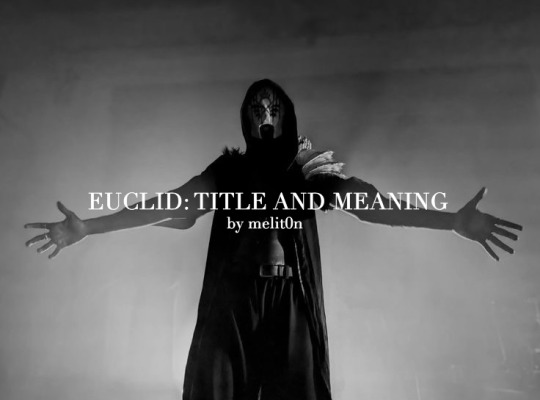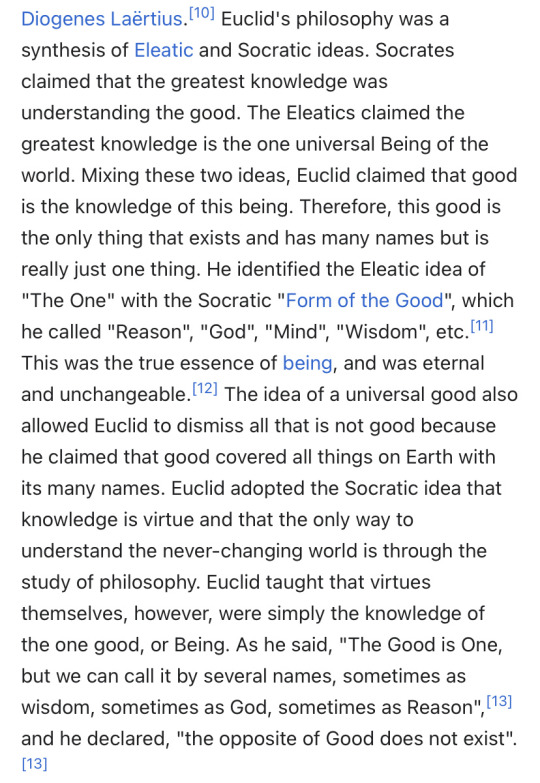#masaive thank you to Nine for spurring me on to continue writing this and eventually post it with their theory post
Text
EUCLID ANALYSIS.
Told you guys it was coming, didn't I? I apologise that this has taken a bit longer than expected, my mental health hit me like a bullet train, but I do hope it's sufficient.
Part one -> You're already here!
Part two -> Line by line analysis part 1
Part three -> Line by line analysis part 2
Part four -> Musical/intrumental notes
Part five -> The Night in Sleep Token
Part six -> Conclusion
Please note this is a general analysis. Although I do go into theories, both my own and others, this is just general thoughts. Also note when I speak of Vessel, I mean Vessel as a character, not the person, unless I specifically state so.
Tagline: @rilllvri @a-s-levynn @fivewholeminutes @euclidsvessel @tonguetyd @moonchild-in-blue @kkarmatic @branches-in-a-flood
+ Some people were worried about spam liking/reblogging the last time I did one of these big analysis posts, and I want to say please don't worry about that! I get happy when I see the same users pop up liking and reblogging my work, because it means you're interested in this enough to go through the whole thing. Feel completely free to add your own thoughts, correct any errors I've made etc. As per usual, my DMs are completely open to anybody wanting to discuss ST <3

Let's start off with the basics. ‘Euclid’ is the anglicised version of the Greek name Eukleídes (Εὐκλείδης), mainly known via the ancient Greek mathematician Euclid of Alexandria, who is seen as the ‘father of geometry’, and most famous for his work on symmetry. Its general definition is something or someone who is renowned and or glorious (A) and the lesser known definition is something that is a copy of the same (B) (taken from Euclid’s ideas on symmetry), which we’ll come back to in a bit.
However, there is another Euclid in history that we’ll be referencing; Euclid of Megara. This Euclid, similar to our mathematician, was an ancient Greek Socratic (having been a pupil of Socrates) philosopher. I’ll be taking part of a text out of his Wikipedia article since his ideas have been explained thoroughly there.

(we'll be coming back to him soon)
First off, this is an incredibly interesting choice of name for a song. Outside of someone's maths and philosophy class, this name doesn't exist to most, so the fact it's been chosen at all is intriguing.
Vessel has shown time and time again he enjoys sometimes elaborate references in his art, an example being chemistry and biology in TPWBYT (most notable would probably be ‘Telomeres’), so, I think it would be easy to say that, whether it be a reference to Euclid the Mathematician or Euclid the philosopher, that said reference is understood and intended by Vessel.
So, let's start with our mathematician, shall we?
What I find interesting about Euclid of Alexandria is that his life and existence outside of his work on geometry is almost completely unknown. There's almost nothing known of him, as a person, other than where he spent half of his career (Alexandria; Egypt, hence his title), where he may have studied (Platonic academy) and a general idea of when he lived (around 300BC). What is known about this insanely famous man who created the foundations of symmetry is incredibly barebones. People take Euclid at face value for his work, just like Vessel (both as an artist, and a character).
Further, we, as listeners, don't have much of an understanding of who Vessel is other than being a mouthpiece of a deity known as Sleep, someone once human now grasping at the threads of humanity and someone sharing some of his struggles in life (both with Sleep and unknown people). Like Euclid, he is barebones, we take him at face value; a vessel. He is both a mouthpiece for Sleep, a mouthpiece for his own emotions (obviously) and a mouthpiece for us. His experiences transcend being just his, due to his anonymity, therefore allowing us to connect and express our own experiences. It's music for the sake of music; expression.
Now, having talked through Euclid as a person, it's time to talk about Euclid and his symmetry. Symmetry in shapes is 'reflections, rotations, translations, and combinations of these basic operations. Under an isometric transformation, a geometric object is said to be symmetric if, after transformation, the object is indistinguishable from the object before the transformation- a copy of the same’. So, of course, this means shapes like squares, rectangles, parallelograms and circles. Circles are a representation of infinity, wholeness, unity and loops. What does Euclid do? Loop itself (starts and ends with B major, which also happens to be the same chord that TNDNBTG starts with), and loops the three albums together, musically and lyrically.
Now, onto Euclid of Megara.
Euclid was born in Megara, Athens and was a follower of Socrates (sneaking into Athens to hear him speak, and he was also present during his death). He is most known for his philosophy that good is the knowledge of simply being and that the opposite of good does not exist, aka evil. The Good is described to be a perfect, eternal, and changeless Form, existing outside space and time. A form of Heaven without a God.
This idea could be linked lore-wise with Sleep Token; Sleep could, in a way, be The Good literally. Bliss. Further, with the idea that there is no actual opposite of good, then how can anything be bad? How can Sleep, as a deity, have bad intentions if there is no actual evil?
So far, with these two notable figures in mind, we can perceive Euclid as one of two ways (and there are more ways to come). Euclid can be seen as quite literally being a form of symmetry; a parallel that Vessel lays his life on because it brings all of the produced albums, all of his stories, together. Or, we can think of Euclid as Vessel. This brings me to @euclidsvessel's post on their theory on Euclid; what if Euclid was Vessel’s name before he became a vessel?
The theory that Euclid could be Vessel’s old name is not only extremely insightful, but very plausible as well. They explained their points very well in their original post, and I don't want to repeat what they’ve already said, so I do implore you to go read that! It's not detrimental to needing to understand this post, but I highly recommend it. Despite this, I am here to both support their argument and bring my own comparison. Take a look at the cover art for Euclid:

Let me repeat the lesser-known definition of Euclid; a copy of the same. A clone. A replacement. Held in the right hand is the decapitated head of Vessel's old (2nd gen.) mask. Specifically, the one that covers his mouth; the version that relinquishes the most amount of humanity. The album art is a representation of change portrayed in a symbolically gory way. Beheading, depending on the era you’re working from, symbolises both vengeance as well as a form of purification. By cutting off the head, you remove any ‘unholy’ thoughts. It's also among one of the most horrific and humiliating ways of killing someone (since it was typically done publicly, and sometimes the heads were placed on spikes of battlements as a warning).
Furthermore, there's a theory that's popped up a couple of times, lore-wise, that Vessel is not the first person to be turned into a vessel of Sleep, and he certainly won't be the last. So, considering the literal album art illustrates a replacement of Vessel, I’d say that theory is pretty much confirmed. In conclusion, the album art can either be interpreted as how Vessel will eventually be discarded and replaced by another vessel, or how Vessel himself will change, for better or for worse; clawing out of his own skin to become “someone new”.
So, to compare the idea of Euclid being Vessel’s old name, and to create the third perception of what or rather, who, Euclid is, what if Euclid will be the eventual replacement for Vessel?
#I would like to mention that the idea of a 'Euclid class object's floated around Reddit theories for Euclid as well#said objects are 'anomalies that are either insufficiently understood or inherently unpredictable'#I didn't include this because it's from SCP and I thought it highly unlikely that it could be a refrence to that#but then again; a lot of the lyrics refrence hardware and un-understandable things so I thought I'd say something about it#masaive thank you to Nine for spurring me on to continue writing this and eventually post it with their theory post#just a very big thank you to everybody on ST Tumblr who post any analysis bits because you all inspire me#with that said#I hope these will be interesting for you all <3#sleep token#st#mel's rambles#euclid#euclid sleep token#sleep token analysis#vessel#vessel sleep token#tmbte#sleep token tmbte#hiding in here that I felt a bit like Hamilton writing these#'John Jay got sick after writing five...James Madison wrote twenty nine...Hamilton wrote the oTHER FIFTY ONE'#apologies to anybody who reads that lmao
59 notes
·
View notes